- Home
- Lynne Reid Banks
The Fairy Rebel Page 2
The Fairy Rebel Read online
Page 2
“Have you got one?”
“Me? No. I’m not ready yet. Please pass me a nasturtium; I’m thirsty.”
Jan picked a nasturtium for her. This time the fairy lay on her back and tipped the nectar down her throat.
“Do you know, I still haven’t got rid of that awful taste,” she said as she licked the last drop off her lips. “Why do humans make those nasty tears?”
“You nearly made some yourself yesterday,” Jan reminded her, “when you thought you were earthed for good.”
The fairy looked up at her—a very odd look.
“That—that awful feeling I had—that was what makes tears?”
“Yes.”
There was a long silence while the fairy thought. Then she said, “But what made you make them? What made you have that feeling?”
“I told you. I’m lonely.”
The fairy frowned and shook her head. “Tell me in another way.”
Jan said quietly, “I want a baby.”
“Then your Queen will send you one.”
Jan smiled sadly.
“I’m afraid it’s not like that with us humans,” she said. “Our babies grow inside us. And there seems to be something wrong with me.”
“Wrong?”
“I don’t seem able to have a baby.”
“Oh well, never mind,” said the fairy comfortably, and closed her eyes again. But after a while, she opened them. “But you do mind,” she said in a different sort of voice, “or you wouldn’t have made tears.”
“That’s right,” said Jan.
“Oh,” said the fairy.
Jan’s hand was getting tired, so she laid it on her knee. The fairy sat for a while, thinking. Then she whirred upward suddenly, vanished and reappeared sitting on Jan’s left shoulder.
“Have you a picture in your head of the kind of baby you’d like, if you could grow one?” she asked.
“Yes.”
“Tell me.”
“What’s the use?”
“You wanted to talk. Talk,” said the fairy.
So Jan sighed very deeply and said:
“I want a girl baby. She doesn’t have to be very beautiful or very clever. Just a nice, normal, ordinary baby. I want her to have soft, brown hair like a bird’s feathers and skin like rose petals. And eyes like Charlie’s, browny-green. And beautiful hands with nails shaped like almonds. And little fat feet.”
There was a pause when she’d finished. “How funny,” the fairy said. “I want a thin, thin elf-baby with green hair.” And then she flew away.
3
The Funny Feeling
Jan didn’t say anything to Charlie this time. Although she didn’t like keeping secrets from him, she had a funny feeling that she ought to keep this one.
She had a funny feeling altogether.
For one thing, she felt much happier. There was no special reason for this. She stopped crying at night, and in the daytime, too. She limped about the house quite gaily, singing to herself some of her old songs. She was even able to think about dances she had once done, without feeling too miserable because she couldn’t dance anymore. Suddenly it didn’t seem to matter so much.
Jan didn’t want to get bored, so she looked in the newspapers and found a job she could do at home. She had to telephone people, and ask them questions and write down their answers. She liked doing this, and people were usually pleased when she phoned them. Charlie was very pleased, too, that she seemed so happy.
Soon Jan felt like seeing some friends again. It had been a long, long time since she’d wanted to see any friends. She wouldn’t visit them but she asked them to visit her, and they did. She even asked the ones who had babies to bring them. She played with the babies, and the surprising thing was that she didn’t feel the least bit sad, even afterward.
“Are you sure you wouldn’t like a holiday?” Charlie asked, seeing that Jan was so much better and not miserable any longer.
“Quite sure, thank you,” said Jan. “I’m very happy here.”
And so she was.
Sometimes, when she wasn’t as busy as usual, she would go into the garden and stand under the pear tree. She didn’t exactly call the fairy—she didn’t want her to get into trouble. But she stood there, just sort of hoping, humming a little tune. She was always rather disappointed when the fairy didn’t come, but not sad. She never seemed to be sad these days.
One morning she was sitting by her bedroom window when she felt a feather touch on the back of her hand. She stopped moving at once and looked. There she was—looking just the same, except that instead of jeans she was wearing a frilly skirt. It made her look like a tiny chrysanthemum, round and petally.
Before Jan could even say hello, the fairy said, “Did you say brown eyes and blue hair, or blue eyes and brown hair?”
Jan blinked. “I didn’t say blue anything. I said brown hair and browny-green eyes like Charlie’s.”
“Oh!” said the fairy. She looked very cross. “What a nuisance!”
“Why?” asked Jan.
“Oh, nothing,” said the fairy in a “tossy” little voice, and started to buzz her wings.
“Wait a minute!” cried Jan. “Why aren’t you wearing your jeans?”
The fairy looked crosser than ever.
“Someone noticed. And told her. And she sent me a message. Told me to change. So I had to.” She tugged at her skirt. “Look at me—just look! I’m as round as a puffball. I look horrible! Even Wijic says I looked nicer in jeans. Now he says they were very slimming.”
“Who makes fairies’ clothes?” asked Jan.
“Makes them? We do.”
“Do you sew them?”
“What’s ‘sew’? We just make them,” said the fairy. She looked round in all directions and then beckoned Jan closer. “Watch!” she whispered.
She closed her eyes and drew her hands down herself, back and front. At once the skirt was changed into jeans. The fairy opened her eyes and gave Jan a naughty grin. Then she looked around guiltily and quickly drew her hands up again the other way, and the jeans changed back into the balloony petal-skirt.
“As easy as that?” said Jan. “So why don’t you make yourself a lovely slim skirt, or a dress? It’s all those bunchy frills that make you look fat.”
The fairy seemed puzzled. “I can’t,” she said. “I haven’t got a picture in my head of any other kind of skirt.”
“I’ll draw you one if you like,” said Jan, “or find one in a magazine.”
The fairy looked amazed. “Could you really? When?”
“Tomorrow. I’ll see you by the pear tree.”
“Oh, not tomorrow, I can’t. I’ve got to fix it about …” She stopped and looked mysterious. “The next day.”
“Right,” said Jan. The fairy grinned and buzzed and was gone.
Two days later, Jan took some fashion magazines she’d found and went and sat under the pear tree. It was nearly winter. All the leaves had turned red and fallen off the tree. Jan was wearing a warm cardigan, but she shivered as she sat waiting. What had the fairy meant about brown eyes and blue hair? It was worrying her.
She sat there for a long time. The fairy didn’t come.
That evening at supper Charlie said, “You’re looking sad again.”
“No!” said Jan, and smiled brightly. “I’m just a little bit worried, that’s all.”
“What about?” asked Charlie.
“I don’t think you’d believe me if I told you,” said Jan.
“Try me,” said Charlie, putting down his knife and fork.
Jan looked at him, took a deep breath and said, “Well. You know I told you I’d seen a fairy.”
“Oh. That!” said Charlie. “I thought you’d got over all that rubbish.”
“Well, I haven’t,” said Jan. “In fact I saw her again, twice. We had long talks. I told her about … you know, how much we wanted a baby, and she … she asked me what kind of one we wanted. So I told her. But I think she may have got it wrong.”
“Jan,” said Charlie impatiently, “what are you talking about?”
“I know it sounds silly,” said Jan, “but ever since we had our second talk—I and the fairy, I mean—I’ve had the oddest feeling that … well, that I might be going to have a baby after all.”
Charlie’s face changed.
“How long ago was it?” he asked.
“Oh, two or three months now.”
“Tell me about these feelings you’ve had, and never mind about the fairy part of it,” said Charlie, getting up and fetching his doctor’s case.
After a short time Charlie was looking very, very excited.
“I do believe you’re right!” he nearly shouted.
That night he made Jan go to bed early. He sat on the edge of her bed, and they talked and talked and talked. Charlie didn’t want to hear any more about the fairy, but he did want to talk about the baby, and what they would call it, and where it would sleep, and what they would buy for it, and where they would send it to school, and all sorts of other things that there was no real need to think about for ages.
And it wasn’t for a couple of hours that he remembered that Jan had been worried at supper.
“I’ve forgotten what you were worried about,” he said, just when they were going to sleep.
“Blue hair,” said Jan drowsily.
“BLUE HAIR!” shouted Charlie, bouncing up in bed. “What are you talking about?”
“The fairy said something about blue hair. I told her of course I hadn’t said blue hair, or even blue eyes; I want the baby to have hazel eyes, like yours. But what I keep thinking is, wouldn’t it be awful if she’d got it wrong, and the baby had blue hair, or even browny-green?”
Charlie switched on the light and looked at Jan. He could see she was serious. There was a long silence.
“Not that I believe in her,” he said, “but surely a fairy couldn’t make a mistake like that.”
“She could,” said Jan. “Fairies have all sorts of hair colors. Her hair is pink.”
“But wouldn’t a fairy notice that human beings don’t have pink and green and blue hair?” said Charlie.
“A lot of young humans do, nowadays,” said Jan. “I mean, they dye it funny colors. Anyway she’s only a very young fairy. She could easily make a mistake.”
“If she’s that young, I don’t see how she could know enough magic to give us any baby at all,” muttered Charlie. He turned out the light and lay down. But he couldn’t sleep and neither could Jan.
4
Snow on a Red Rose
After that, Jan went out into the garden every day and sat for as long as she could under the pear tree. Mild days and frosty days, rain and shine, she went out to give the fairy a chance to meet her. She always hoped she would see the fairy, and when she didn’t, she would come back disappointed and worried. She felt more and more sure something was wrong.
Charlie didn’t know that she was doing this every day. He would have been cross if he had, because he had told her to keep warm. And he was right. One day Jan sat outdoors too long in a cold winter wind and caught a very bad cold.
Charlie put her to bed and stayed away from work to look after her.
“Charlie,” croaked Jan in her cold-y voice, “do me a favor. Push my bed up against the window so I can look out.”
Charlie was worried about drafts but he did as she asked. She propped herself up on lots of pillows and spent the day staring out into the bleak and leafless garden. She didn’t feel like eating. Charlie kept popping in to chat with her, but it didn’t help.
At night he wanted to move the bed back to its usual place, but Jan wouldn’t let him.
“Can we have the window open?” she begged.
“Certainly not,” said Charlie firmly. “It’s freezing hard outside.”
The next morning Jan woke up early. There was a strange grayish light in the room. She sat up quickly and looked out of the window.
“Oh, Charlie, look!” she cried. “Snow! How beautiful! I’d love to go out and play in it,” she added.
“Well, I’m afraid you can’t,” said Charlie sensibly.
When he brought her breakfast, he found her crying.
“What is it, darling? Is your cold worse?” he asked.
“I want to go out in the snow,” she sobbed. “I need to! Please, Charlie, I’ll wrap up very well. My cold is gone—honestly it is!”
Charlie took her temperature and looked at her throat and at last agreed that if she put on two blouses, and two sweaters and warm trousers and fur boots and the thickest scarf and gloves and woolly hat she owned, she might go into the garden for a very few minutes.
At once Jan felt her sadness and sickness leave her. She jumped out of bed and got dressed in all the things Charlie had mentioned, and then she ran out into the snowy garden.
It was lovely out there. The sun was shining; the snow was deep and powdery. She ran about, kicking it up in the air and watching it glitter as it fell in a shower around the toe of her boot. All the twigs and evergreen leaves and even the fir-tree needles had coats of fine snow. Jan even found a rosebush with a red rose on it. The rose was covered with snow too. Every petal had a rim of snow along its edge.
Roses are summer flowers, so Jan was surprised to see it. She picked it. When Charlie called her, she took it to show him.
“Look,” she said, holding it out. “Poor, cold little rose.”
“It certainly doesn’t look very happy,” said Charlie, who was at the stove making hot chocolate.
Jan gave the rose a flick to knock the snow off its petals. The snow fell coldly onto her hand, and suddenly something more solid landed in her palm with the snow.
“Oh!” cried Jan, as if she’d been stung. She stood staring into her cupped hand, her mouth and eyes wide open.
“What is it?” asked Charlie, pouring the chocolate into mugs.
“Come and look.”
Charlie came and looked.
You never in your life saw a man look more astonished than Charlie did at that moment.
“I don’t believe it,” he said slowly. “I—do—not—believe it.”
A little thing like a red caterpillar was curled in Jan’s hand. But it wasn’t a caterpillar.
“See?” whispered Jan. “He’s earthed, poor little thing.” And they both peered closely at the tiny curled-up figure.
He was about the same size as the fairy, but quite clearly he was an elf. He wore a red tunic and pointed shoes and a pointed red cap. His ears were pointed too, though they were almost too small to see. His hair and his skin were as green as a leaf. He seemed to be asleep.
Charlie was making swallowing noises and screwing up his eyes.
“It’s true,” he said at last. He seemed quite dazed.
“You don’t think he’s frozen, do you?” asked Jan suddenly, when the elf didn’t move. “He’s the same color as the flower. He shouldn’t be out in winter, either. Oh, Charlie, do make sure he’s all right!”
Charlie gave her a funny look. “I’m a people-doctor, not an elf-doctor,” he muttered, but he let Jan gently tip the elf into his big hand and had a good look at him. Then he poked him carefully with his little finger to uncurl him.
“He’s very cold,” he said, “but I believe he’s warming up now from the heat of my hand. Let’s see if he wakes up by himself.”
Jan put a puff of cotton wool over him and after a few minutes she said, “Look, he’s moving!” And the next thing was that the elf sat up in Charlie’s hand and sneezed. Then he looked around him and saw Jan and Charlie and jumped up in a fright.
“It’s all right,” said Jan quickly. “I’m Jan, and this is Charlie, and we both believe in you, so you can fly away whenever you like.”
The elf had already spread out his wings—two pairs, clear as glass—but then he seemed to relax.
“Jan!” he said. “Oh. It’s you. I’ve seen you with Tiki. I was sitting up in your pear tree that first time you met her.”
“That’s me,” said Wijic.
“It was because of you that she got earthed on my toe!”
Wijic sniggered unfeelingly.
“Silly thing shouldn’t drink so much nectar and get so fat,” he said.
“Is she all right?” Jan asked.
“Who? Tiki? How do I know? Haven’t seen her for ages.”
“Why not?”
“I’ve been asleep most of the time,” said Wijic. “I was having a nap in that rose when the first frost came. I was too cold to creep out, so I just curled up and went back to sleep.”
“Wasn’t that dangerous? If you’re a rose-elf?”
“Who says I’m only a rose-elf? I’m an any-old-flower elf if you want to know. Any red flower, that is,” he added.
“Can’t you change your clothes, like Tiki?”
“Course I can!” said the elf. “I can do anything she can do! Just you watch.” And he stood up, kicking the cotton wool aside, and drew his hands down himself. At once his tunic was changed to a red school blazer and red shorts, red kneesocks and a red school cap. He looked, for an elf, very odd indeed, and Charlie burst out laughing.
“What’s so funny?” Wijic asked in a hurt voice.
“You look like a schoolboy!” said Charlie. “Not an elf at all.”
“That’s because I wish I was a schoolboy and not an elf,” said Wijic.
“For heaven’s sake, why? If you were a schoolboy, you couldn’t do any magic, or make yourself invisible, or anything!”
“Oh—all that’s just ordinary. Who needs it?” said Wijic. “Think of the fun of waking up in the morning in a real bed, with real bedclothes, and then having real clothes to put on one by one, and then eating breakfast that wasn’t all sweet … You can’t think how sick and tired I am of nectar and honey and all that fairy fruit!”

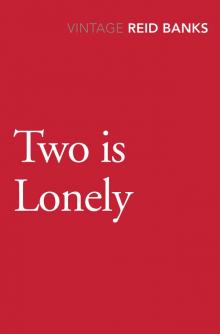 Two Is Lonely
Two Is Lonely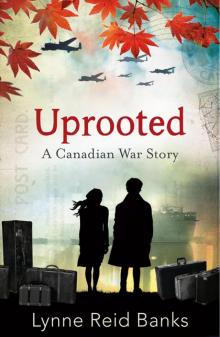 Uprooted - a Canadian War Story
Uprooted - a Canadian War Story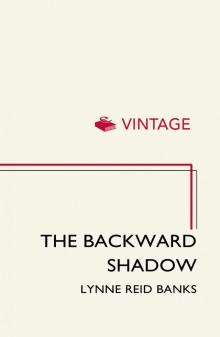 The Backward Shadow
The Backward Shadow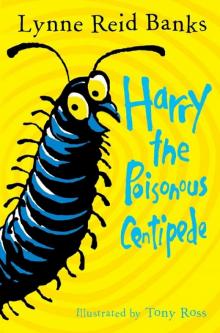 Harry the Poisonous Centipede: A Story to Make You Squirm
Harry the Poisonous Centipede: A Story to Make You Squirm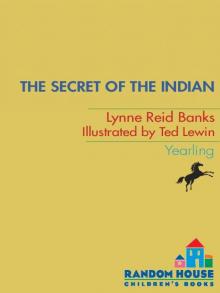 The Secret of the Indian (The Indian in the Cupboard)
The Secret of the Indian (The Indian in the Cupboard)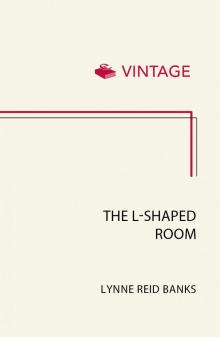 The L-Shaped Room
The L-Shaped Room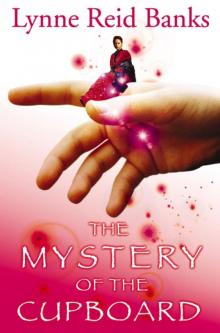 The Mystery of the Cupboard
The Mystery of the Cupboard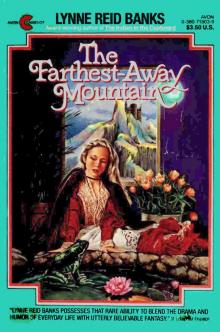 The Farthest-Away Mountain
The Farthest-Away Mountain Harry the Poisonous Centipede Goes to Sea
Harry the Poisonous Centipede Goes to Sea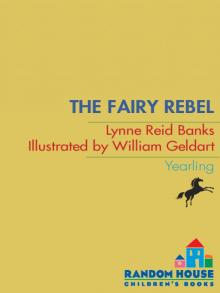 The Fairy Rebel
The Fairy Rebel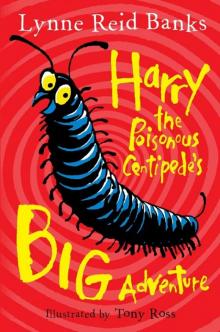 Harry the Poisonous Centipede's Big Adventure: Another Story to Make You Squirm
Harry the Poisonous Centipede's Big Adventure: Another Story to Make You Squirm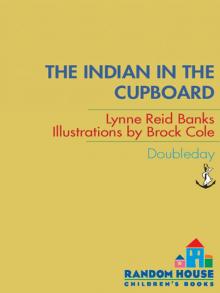 The Indian in the Cupboard
The Indian in the Cupboard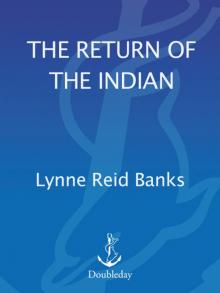 The Return of the Indian
The Return of the Indian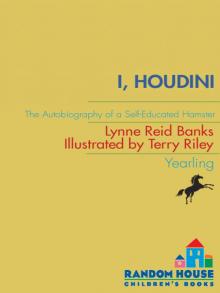 I, Houdini
I, Houdini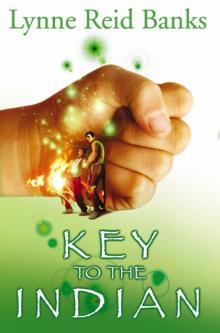 The Key to the Indian
The Key to the Indian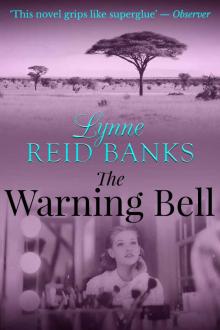 The Warning Bell
The Warning Bell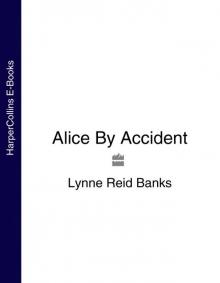 Alice by Accident
Alice by Accident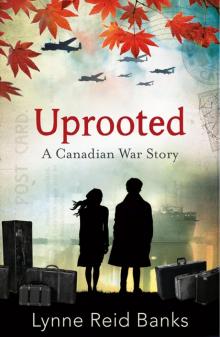 Uprooted
Uprooted Writing On the Wall
Writing On the Wall The Adventures of King Midas (Red Storybook)
The Adventures of King Midas (Red Storybook)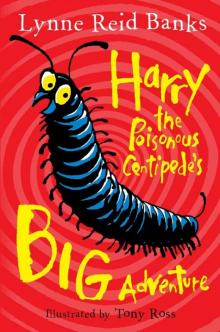 Harry the Poisonous Centipede's Big Adventure
Harry the Poisonous Centipede's Big Adventure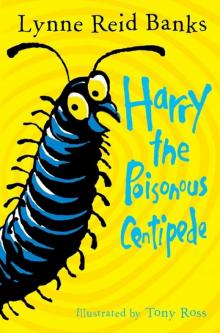 Harry the Poisonous Centipede
Harry the Poisonous Centipede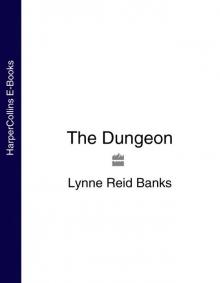 The Dungeon
The Dungeon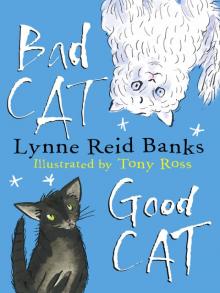 Bad Cat, Good Cat
Bad Cat, Good Cat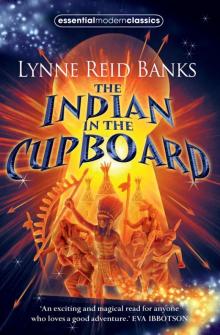 The Indian in the Cupboard (Essential Modern Classics, Book 1)
The Indian in the Cupboard (Essential Modern Classics, Book 1)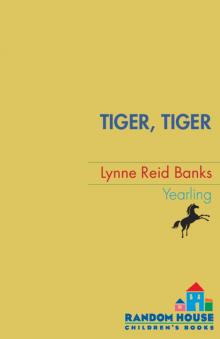 Tiger, Tiger
Tiger, Tiger